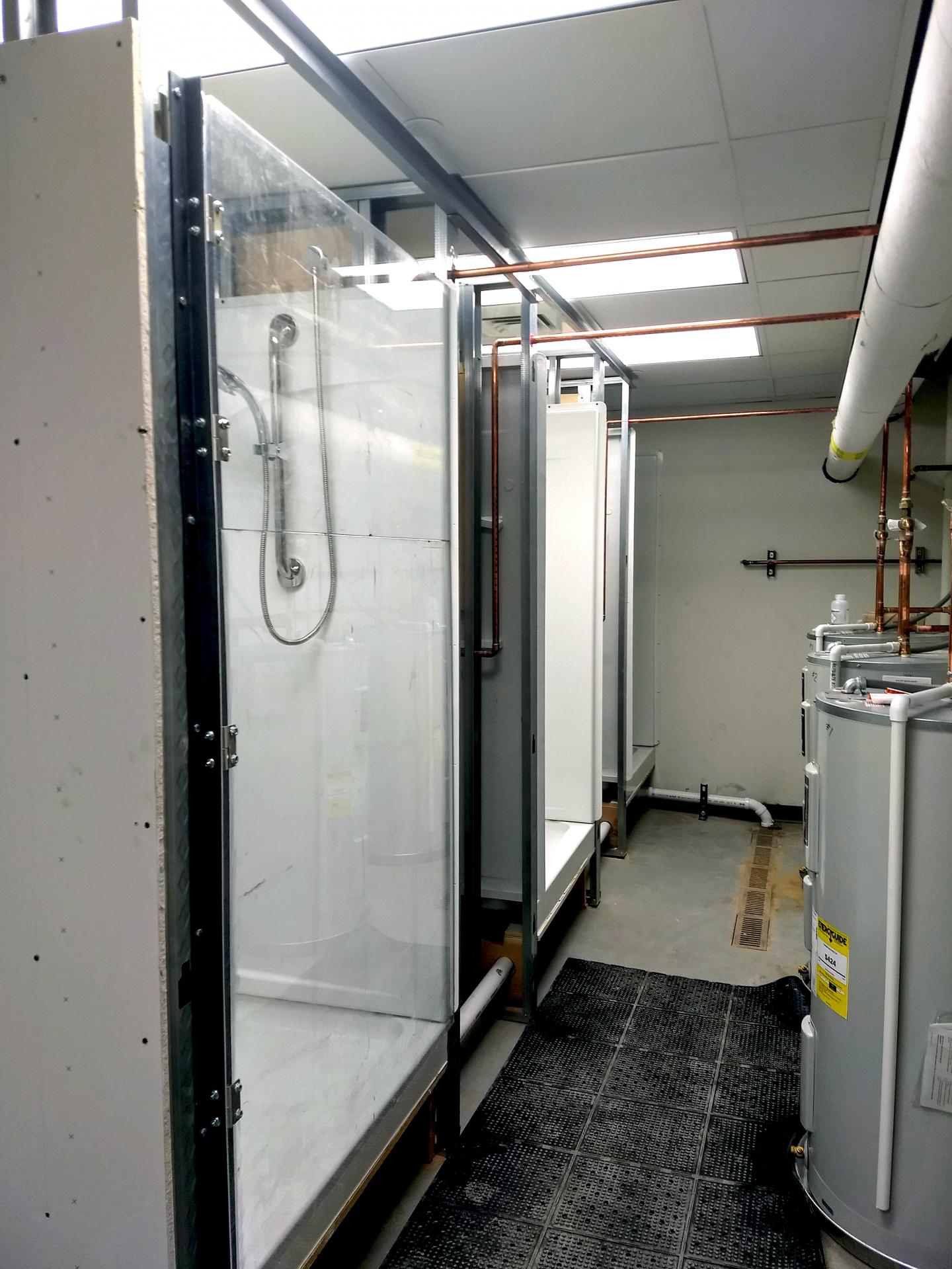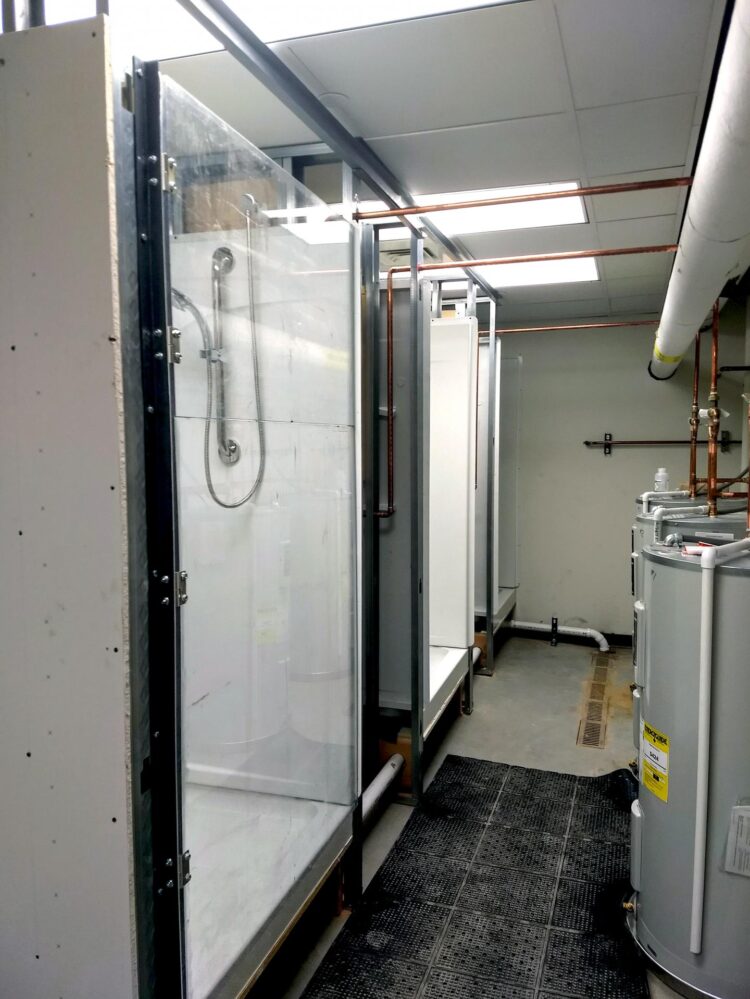Pitt Researchers receive $330K to test whether silver modified shower fixtures effectively prevent opportunistic pathogen exposure

Credit: Sarah Haig
PITTSBURGH (July 7, 2020) … As workplaces prepare to reopen, precautionary measures like plexiglass barriers and sanitizer stations have been put in place to help prevent the spread of the novel coronavirus. Researchers and public health experts, however, warn that this might not be the only health concern to worry about.
Buildings that have been relatively abandoned for months likely have stagnant water in the plumbing, and if not treated properly, this can be a breeding ground for bacteria. The National Science Foundation awarded a cross-disciplinary team of researchers from the University of Pittsburgh $330,000 to examine the effect that silver, embedded in shower fixtures, has on water disinfection.
“While the context of our proposed research is showers in homes, offices, healthcare facilities, and gyms under normal operation, the COVID-19 pandemic introduces a new relevance to our project,” said Leanne Gilbertson, assistant professor of civil and environmental engineering (CEE) at Pitt’s Swanson School of Engineering and lead researcher on the study.
Municipally treated drinking water is not sterile. Instead, it is home to many types of microbes, the majority of which are not harmful.
“Typically, the drinking water entering buildings contains a disinfectant residual, such as chlorine, to help prevent and reduce microbial growth,” explained Sarah Haig, assistant professor of CEE at Pitt. “However, changes in water chemistry, building fixtures and building operation, like the long periods without water use (stagnation) recently observed across the world during the COVID-19 pandemic will have unexpected consequences on building water quality.”
According to Haig, the long stretches of stagnation can result in low to no disinfection residual being present in building water. This creates an ideal growth environment for many microbes such as Legionella pneumophila.
Opportunistic pathogens (OPs) like Legionella pneumophila, which causes the respiratory Legionnaires’ disease, can become airborne simply by turning on a faucet or flushing a toilet. This poses an additional public health threat to a world that is already in the midst of a pandemic. There are various strategies for preventing illness, but researchers have yet to discover a perfect solution.
“Water fixtures containing silver are believed to eliminate bacteria due to the antimicrobial properties of this heavy metal; however, heavy metal exposure is also known to transform some bacteria into antibiotic resistant forms,” said Gilbertson.
Antibiotic resistance is a major threat to global health, food security, and development so Gilbertson and her colleagues will use this award to determine if these silver-coated fixtures provide a viable solution or are perhaps doing more harm than good.
“Many aspects of both the water composition and water fixtures can influence how much and how fast silver interacts with bacteria,” explained Jill Millstone, associate professor of chemistry at Pitt. “We’ll work to quantify these factors and make connections between the presence of OPs and the amount, type, and rate of silver release. Uncovering these relationships should lead to more effective fixture design that maximizes antimicrobial activity and minimizes resistance build-up.”
Janet E. Stout, president of the Special Pathogens Laboratory and an internationally recognized expert on Legionella, will also contribute to this work.
“Conditions in the water systems of about 50 percent of large buildings promote Legionella growth and spread. Fatal infections occur at a rate of up to 30 percent in hospitals and 10 percent in the community. This research explores how we might interrupt the spread right at the fixture,” said Stout, who also holds and appointment as research associate professor of civil and environmental engineering at Pitt.
The research will leverage the unique capabilities of Haig’s INHALE Lab, which houses three full-size shower stalls, each with its own water heater and three showerheads. This enables the research team to investigate the influence of different showerhead materials. The findings will reveal if silver is an effective strategy to mitigate bacteria in shower water as well as if it potentially induces antibiotic resistance.
###
Media Contact
Leah Russell
[email protected]
Original Source
https:/





